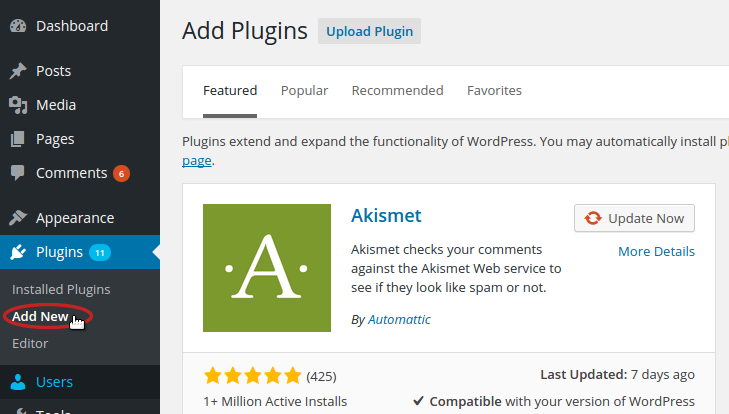The Best SEO Reporting Software: Because Staring at Spreadsheets Shouldn’t Be a Full-Time Job
Let’s face it—SEO reporting can feel like herding cats. One minute you’re tracking keyword rankings, the next you’re drowning in Google Analytics data, and suddenly you’re wondering why your “organic traffic” chart looks like a rollercoaster designed by a toddler. But what if we told you there’s a better way? Spoiler: There is.
At Sitelinx Organic SEO Agency in Los Angeles, we’ve spent years wrestling with clunky tools and vague metrics. Today, we’re sharing our hard-earned wisdom (and a few laughs) to help you find the best SEO reporting software that’ll make your workflow smoother than a fresh jar of almond butter.
Why Bother With SEO Reporting Software? (Besides Saving Your Sanity)
Think of SEO reporting as your website’s annual physical. Without it, you’re just guessing why your site’s “health” is stuck in 2012. Good reporting tools do three things:
- Show progress (or lack thereof) in plain English.
- Highlight opportunities even your boss’s boss can understand.
- Save time so you can focus on actual work—like optimizing content or arguing with developers about meta tags.
And hey, if you’re a local business? Local SEO is your golden ticket. Tools that track Google Business reviews, map rankings, and nearby searches are non-negotiable. (Shameless plug: That’s literally our bread and butter at Sitelinx. Hit us up if you hate guessing where your “near me” traffic vanished to.)
What Makes SEO Reporting Software “The Best”? Hint: It’s Not Just Fancy Charts
We’ve tested more tools than we’ve had oat milk lattes—and trust us, that’s a lot. Here’s what separates the “meh” from the “heck yes”:
1. Accuracy That Doesn’t Require a Crystal Ball
Tools that promise “real-time data” but deliver numbers older than your aunt’s Facebook memes? Hard pass. Look for platforms that sync directly with Google Search Console, Google Analytics 4, and—if you’re a WordPress user—plugins that play nice with your CMS.
2. Customization Without Needing a PhD
Your client in Idaho doesn’t care about your click-through rates in Iceland. The best tools let you tweak dashboards faster than you can say, “But wait, there’s more!” Bonus points for white-label reports. (FYI: Our team at Sitelinx lives for this stuff. We build reports so clean, your clients might actually read them.)
3. Integration That Doesn’t Require Duct Tape
If your SEO software doesn’t jive with Google Business reviews, CRMs, or email platforms, you’re basically using a flip phone in 2024.
The Contenders: A No-BS Comparison
We’ve narrowed it down to five tools that won’t make you want to yeet your laptop into the Pacific. Here’s the scoop:
| Tool | Best For | Key Features | Price |
|---|---|---|---|
| AgencyAnalytics | All-in-one reporting | White labeling, client portals, Local SEO tracking | Starts at $12/mo |
| SEMrush | Competitor analysis | Position tracking, content audits, keyword gaps | Starts at $99/mo |
| Ahrefs | Backlink nerds | Site Explorer, rank tracking, content grading | Starts at $99/mo |
| Google Looker Studio | Budget-conscious folks | Free, integrates with Google tools, customizable | $0 (yes, really) |
| SE Ranking | Small businesses | White-label reports, keyword clustering, task tracking | Starts at $44/mo |
Our Hot Take:
- AgencyAnalytics is like the Swiss Army knife of reporting—perfect if you’re juggling multiple clients.
- SEMrush and Ahrefs? They’re the Beyoncé and Jay-Z of SEO tools. Powerful solo, unstoppable together.
- Google Looker Studio is free, but you’ll need patience (and maybe a YouTube tutorial).
- SE Ranking gives you bang for your buck, especially if you’re a WordPress warrior needing task management.
Common Mistakes Even “Pros” Make (Don’t Be That Guy)
Mistake #1: Overcomplicating Reports
Your client isn’t paying you to flex your pivot-table skills. Keep it simple: focus on traffic, conversions, and ROI.
Mistake #2: Ignoring Local SEO
If your tool doesn’t track Google Business reviews or local pack rankings, you’re leaving money on the table. (Psst: This is where an SEO agency like Sitelinx shines—we automate this nonsense so you don’t have to.)
Mistake #3: Forgetting to Update
SEO moves faster than TikTok trends. Set reports to auto-refresh, or risk looking like you’re still optimizing for Ask Jeeves.
FAQ: Because Googling “SEO Reporting” Feels Ironic
1. “How often should I generate SEO reports?”
Monthly for clients, weekly if you’re actively tweaking campaigns. Daily? Unless you’re running a Fortune 500 site, that’s overkill.
2. “Can I DIY this instead of hiring an SEO company?”
Sure—if you enjoy unpaid overtime. Tools help, but interpreting data? That’s where an SEO specialist earns their kombucha budget.
3. “What’s the biggest waste of time in SEO reporting?”
Tracking vanity metrics like “impressions” without linking them to sales. Clicks don’t pay bills, folks.
4. “Why does everyone recommend SEMrush or Ahrefs?”
They’re thorough, but pricey. If you’re a solopreneur, start with SE Ranking or bug a pro team (like, ahem, Sitelinx) for help.
Wrapping Up: Your SEO Report Card Doesn’t Have to Suck
Choosing the right SEO reporting software is like dating: you want reliability, transparency, and zero drama. Whether you’re a DIY champ or prefer handing the reins to an SEO agency, the goal is the same: make data your ally, not your enemy.
And hey, if you’d rather spend your time growing your business than decoding analytics? Our door at Sitelinx Organic SEO Agency is always open. We’ll handle the reports; you handle the high-fives when rankings soar. 😉
Final thought: Life’s too short for bad coffee and worse SEO tools. Choose wisely, friends.

